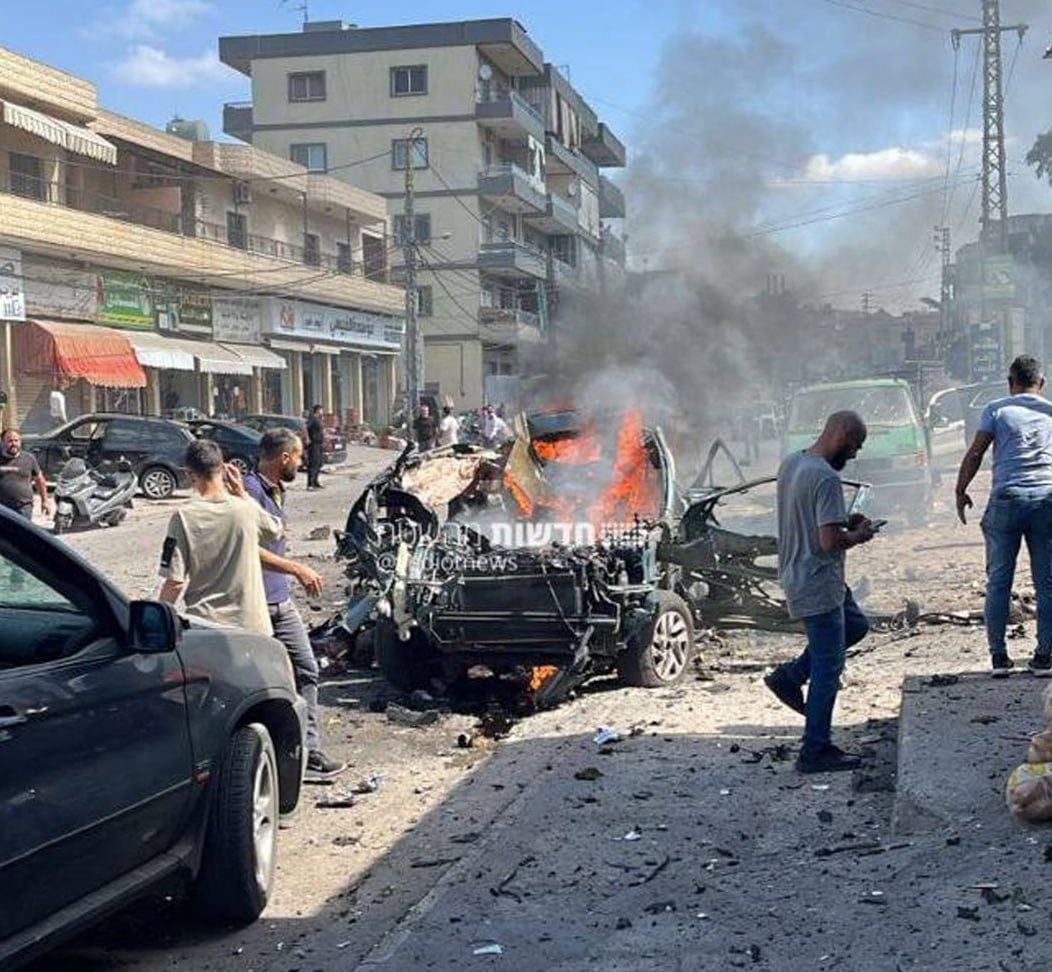Barsam Mohammadi – Regional Affairs Expert
Recently, the army of the Zionist regime has carried out an increasing wave of airstrikes and missile attacks deep into Lebanese territory. The Zionist regime’s main pretext for this action has been claims about the rebuilding and strengthening of Hezbollah’s military capability and the transfer of weapons from Syria. These attacks, which are in fact a violation of Lebanon’s sovereignty and national security, indicate that the Zionist regime, regardless of the dangerous consequences of its military actions, intends to start another war against Lebanon.
According to published reports, a military attack on Lebanon is on the agenda of the Zionist regime’s war cabinet, and various options for this attack are being considered. Weeks ago, American officials started a campaign of threats that if Hezbollah is not disarmed, they will set aside hesitations and give the Zionist regime a free hand to take any action in Lebanon. Tom Barak, the American envoy, recently warned that if Hezbollah is not disarmed by January 2026, the likelihood of Tel Aviv launching a military operation to complete this mission will increase significantly.
Despite intense American pressure for the disarmament of Hezbollah and the setting of a timetable for achieving this, which must be implemented by January 2026, Lebanese political and military leaders show little inclination to enforce the disarmament of Hezbollah, which must also extend to 12 Palestinian refugee camps within the country’s borders. Currently, American officers stationed at the Northern Command headquarters in the occupied city of Safed are monitoring the operation process moment by moment, an issue that indicates direct and unprecedented coordination between Washington and Tel Aviv in managing the war room against Lebanon.
Hidden Objectives Beyond Disarming Hezbollah
The fundamental question is whether the Zionist regime’s military focus on Lebanon is solely aimed at disarming Hezbollah or if it pursues objectives beyond that. What is clear is that the insistence of the Zionist regime and America on disarming Hezbollah is aimed at occupying parts of this country’s territory. Since the establishment of the Zionist regime, Lebanon, due to its geographical proximity, geopolitical position, and diverse political structure, has always been at the center of attention for Tel Aviv’s strategic planners. For historical and security reasons, the Zionist regime has considered the dream of annexing parts of southern Lebanon as a strategic goal.
This has always been of interest to Zionist officials, not only based on historical claims but also for controlling water resources and creating strategic depth against threats from the northern front. So far, Hezbollah, as the most powerful resistance force on the northern borders of occupied Palestine, has been the main obstacle to the expansionist and occupationist actions of this regime. It can be said without a doubt that without the presence of Hezbollah, Lebanon would have experienced a fate similar to Palestine and the Golan years ago. Although the Zionist regime has declared the destruction of Hezbollah’s defensive and missile capabilities as its stated goal, the real objective is beyond this, and this regime, in a long-term plan, seeks to annex parts of Lebanon to the occupied territories.
Despite external threats from America and the Zionist regime, Lebanon has one strength, and that is the existence of Hezbollah as the largest social and security capital and the most powerful deterrent factor against any occupation. Hezbollah has so far prevented the realization of the Zionist regime’s expansionist plans in this country. The military and missile capabilities of Hezbollah, which have been demonstrated many times in the field, raise the cost of any attack on Lebanese soil to a complex and heavy level for the regime and pose severely destructive and devastating consequences against this regime. The Zionist regime seems to have misunderstood the internal developments of the Lebanese resistance and made miscalculations in this regard.
Changing balance of power and the Experience of Previous Wars
Hezbollah today is the same Hezbollah as before November 2024, with the difference that it has increased motivation, power, and new tactics. In the last round of conflict, which lasted thirteen months, for the first time in a short period, more than eighteen thousand missiles and rockets and six hundred offensive and intelligence drones were fired or dispatched towards the occupied territories, resulting in the death of more than 150 soldiers of the Zionist regime and three thousand wounded. Simply put, in its last war with Hezbollah, this regime suffered about seven times the average casualties of previous wars. Hezbollah’s entry into the Gaza war also led to Bezalel Smotrich, the Finance Minister of the Zionist regime, to admit in a speech in the Knesset that the Palestinian and Lebanese resistance has imposed the longest and most costly war in the history of the Zionist regime on it.
Any widespread military action by the Zionist regime against Lebanon will not be a strategic victory, but rather the starting point for this regime’s entry into an incalculable quagmire, which will first and foremost expose the regime’s security to an unprecedented threat. The Zionist regime is preparing for a war that is by no means similar to the limited conflicts of the past. But contrary to the Zionists’ perception, Hezbollah, after the martyrdom of Sayyed Hassan Nasrallah and during the new leadership period, regained its power and deterrence in the shortest possible time and still possesses a powerful arsenal of precise, long-range, and devastating weapons capable of putting all the soil of the occupied territories – including vital centers, military bases, and economic and energy infrastructures – under a missile barrage.
Without a doubt, any warmongering against Lebanon will not only face the resistance of the people but also the decisive response of Hezbollah and the country’s army, turning it into a costly and destructive war for the security, economy, and society of the Zionist regime; a regime that, contrary to its apparent shows of power and artificial narratives, is internally facing deep political and social crises and an extremely fragile situation.










0 Comments